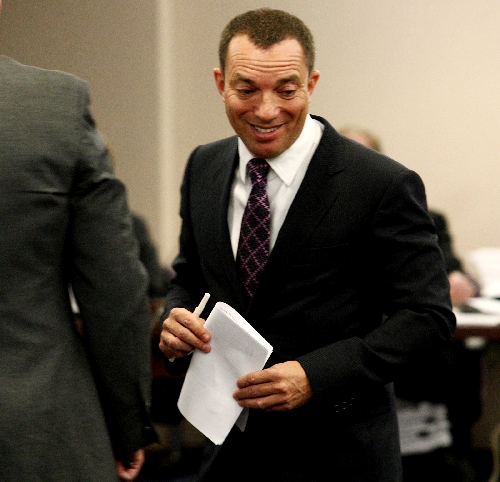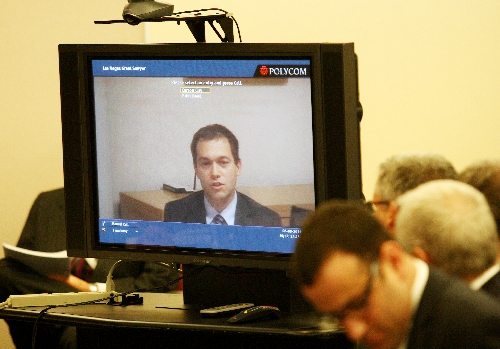Control Board OKs relationship between Caesars, online gaming provider


Nevada gaming regulators said Wednesday they weren’t passing judgment on the legality of Internet gaming in the United States when they tentatively approved the business relationship between Caesars Entertainment Corp. and online gaming provider 888 Holdings.
The Gaming Control Board unanimously found that the arrangement between the companies was suitable under Nevada’s Foreign Gaming Act following a hearing that lasted more than two hours.
If the Nevada Gaming Commission agrees with the decision, it would be the first deal ever approved between a state-licensed gaming company and a foreign-based Internet gaming operator.
"What we’re doing today is looking at the suitability of a business relationship," control board member A.G. Burnett said in summing up the position of the three-member panel. "We’re not granting (888 Holdings) a Nevada gaming license and we’re not making a ruling on U.S. gaming law."
888, which based in Gibraltar, and its DragonFish subsidiary, provide Caesars with the equipment, software and security measures to operate online gaming websites in the United Kingdom.
The Internet domains, which include a casino site themed after Caesars Palace, and a World Series of Poker site, don’t accept wagers from Americans. Caesars recently announced plans to launch Internet gaming sites in France and Italy.
Control board Chairman Mark Lipparelli said the matter was the first time an Internet gaming company had been included in a public hearing before Nevada gaming regulators. He said each subsequent case that comes before the control board would be handled on its individual merits.
Lipparelli said Nevada gaming regulators have much better handle on Internet gaming than they did a decade ago.
"I’ll use a baseball analogy. We’re only in the third inning," Lipparelli said. "We’re early in the game."
Caesars Interactive Entertainment CEO Mitch Garber told gaming regulators the arrangement with 888 was struck after an exhaustive internal investigation of the company by the casino operator’s regulatory and legal compliance department.
Garber said he became familiar with 888 and its management team when he ran Internet gaming giant PartyGaming before joining Caesars.
Garber said it was more cost-effective for 888 to build the Caesars and World Series of Poker websites than having the casino operator create the software.
"Caesars is responsible for branding, marketing and customer acquisition," Garber said.
888 CEO Gigi Levy, who testified from Tel Aviv, Israel, via a video hook-up, said his company’s records were open to any gaming commission worldwide or government regulatory body. The company, which is publicly traded on the London Stock Exchange, is regulated by gaming authorities in Gibraltar.
"We operate sophisticated anti-fraud and anti-money laundering systems," Levy said.
Levy said 888 estimates that more than $24.2 billion will be wagered on the Internet in 2011.
888 accepted wagers from American gamblers before the October 2006 passage of the Unlawful Internet Gaming Enforcement Act., which made it a crime for banks and other financial institutions to process transactions used in online gaming. 888 immediately stopped taking wagers from Americans, reducing company revenues by 57 percent.
Attorney Michael Horowitz of Washington D.C., one of several lawyers representing 888, spelled out nine reasons why the company believed it was legal to accept wagers from Americans before 2006.
However, the company believed the Congressional intent of the Unlawful Internet Gaming Enforcement Act was to outlaw the activity in the United States, which is why 888 walked away from a large revenue source.
Contact reporter Howard Stutz at hstutz@reviewjournal.com or 702-477-3871.












